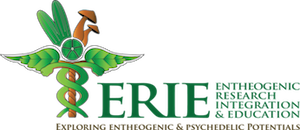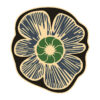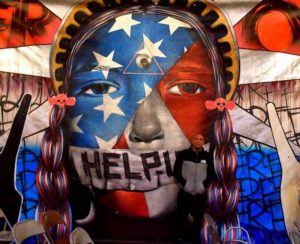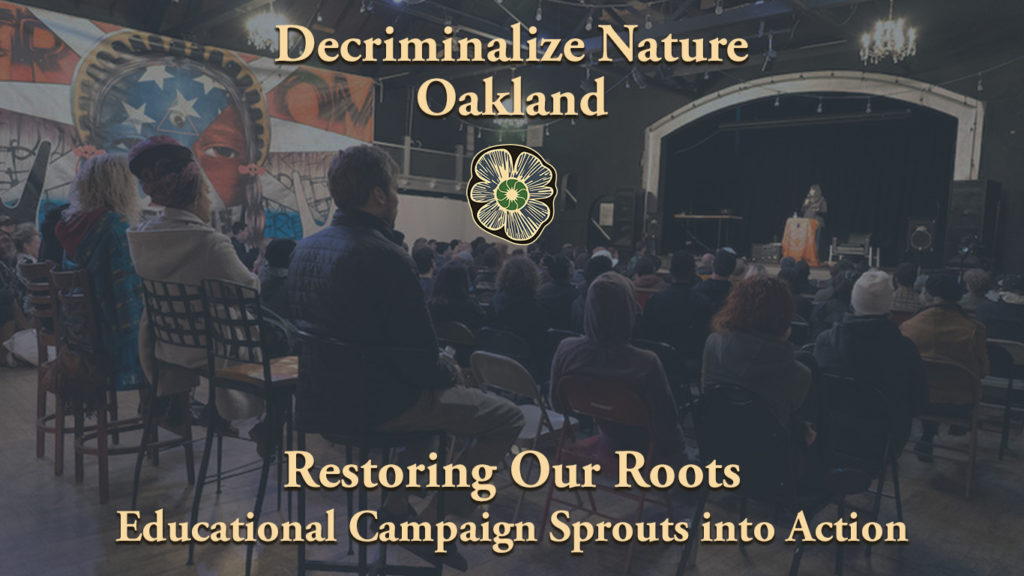
An incredible evening
ERIE was honored to participate in the Decriminalize Nature Oakland (DNO) educational rally to inform the Oakland community about the benefits of entheogenic plants and fungi, March 22, 2019, at the Omni Commons. The DNO event was attended by over 175 excited members of the community, including Oakland’s residents, botanists, researchers, educators, journalists, medical practitioners, veterans, and facilitators sharing about the transformative potential of entheogens. The educational event included both speakers and testimonials, as well as action tables sponsored by eight different community organizations to help support the movement. The aim of this initiative is to bring a resolution to the Oakland City Council to vote on the decriminalization of all plants and fungi on the Schedule One list of controlled substances.
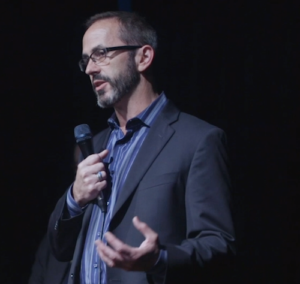 Intention of resolution
Intention of resolution
Much like the intention of the resolution, the evening began with a statement of gratitude. DNO steering committee member and co-founder, Bob Otis gave thanks for the opportunity to participate in this project and connect with community. He recognized the rich history of Temescal, and offered gratitude to the stewards of the land and the place, honoring the traditions, elders, and natural environment.
To restore our connection to nature, the Decriminalize Nature movement seeks to officially make natural entheogenic medicines a low to no priority for law enforcement, essentially “decriminalizing” the use of these plants in Oakland. This approach is exciting communities throughout the United States. DNO spokesperson said, “If successful in Oakland, this resolution could be a model for other cities, and communities in Los Angeles, Monterey, Sacramento, Seattle, and even activists on the East Coast, Texas and Oklahoma have expressed interest in duplicating the language for their own community initiatives.” Click here to see the proposed resolution.
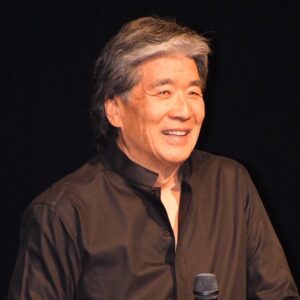 The Decriminalize Nature initiative aims to go beyond the pioneering policy movements in Denver, Colorado and Oregon, which focus on decriminalizing Psilocybe mushrooms and legalizing psilocybin. The Oakland resolution addresses all natural plants and fungi on the Schedule One list of banned substances, whose inclusion suggests there are no medical benefits and high potential for abuse. One of the co-founders of DNO, Dr. Gary Kono, a retired surgeon and 46 year Oakland resident, stated at the event, “Criminalizing psychedelic plants and the different targets of the War on Drugs have always been based upon politics and never science.” Dr. Kono described five myths of the drug war in his talk and shared his own process breaking through the cultural stigma and his subsequent discovery of the value of entheogens. Although the excitement for change is building nationwide, Dr. Kono reminded everyone that “decriminalizing movements outside of Oakland can run anyway they want. But here in Oakland our movement has been, and will be about one thing, the manifestation of love.” The DNO event reflected that intention with a beautifully diverse community present, all joining together to stand for a common cause.
The Decriminalize Nature initiative aims to go beyond the pioneering policy movements in Denver, Colorado and Oregon, which focus on decriminalizing Psilocybe mushrooms and legalizing psilocybin. The Oakland resolution addresses all natural plants and fungi on the Schedule One list of banned substances, whose inclusion suggests there are no medical benefits and high potential for abuse. One of the co-founders of DNO, Dr. Gary Kono, a retired surgeon and 46 year Oakland resident, stated at the event, “Criminalizing psychedelic plants and the different targets of the War on Drugs have always been based upon politics and never science.” Dr. Kono described five myths of the drug war in his talk and shared his own process breaking through the cultural stigma and his subsequent discovery of the value of entheogens. Although the excitement for change is building nationwide, Dr. Kono reminded everyone that “decriminalizing movements outside of Oakland can run anyway they want. But here in Oakland our movement has been, and will be about one thing, the manifestation of love.” The DNO event reflected that intention with a beautifully diverse community present, all joining together to stand for a common cause.
Entheogen or psychedelic?
Entheogen simply translated means to generate the divine within and shares a similar root to enthusiasm. Although psychedelic is more recognizable to the general public, Ruck, Ott, and others coined the term entheogen in 1979 to describe sacred plant and fungi use outside of the psychedelic culture of the ’60s, such as ayahuasca, peyote, or iboga ceremonies. Today the term psychedelic is trending toward scientific research and often excludes perspectives from indigenous traditions or underground practitioners. DNO includes the word entheogen to highlight both the multicultural connection with these sacred plants and fungi and the inalienable right we have to develop our own relationship to our inner divinity. In addition, framing the resolution as “Decriminalize Nature” highlights a deeper conversation about the severing of these sacred plants from humanity following millennia of colonization and suppression.
Who has the authority to declare nature illegal? In the state of California, I am not legally allowed to grow a peyote button, or gather natural Psilocybe mushrooms out of the ground, let alone ingest them.
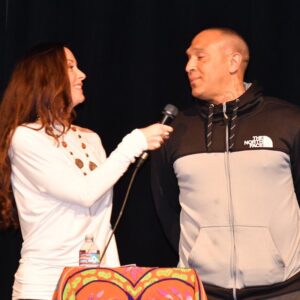 Elizabeth Bast author of Heart Medicine, stated, “To be unable to build a relationship with natural entheogens, which were given to us by Creator, is a fundamental violation of our rights to life, liberty, and the pursuit of happiness.” Joined by iboga-inspired artist Chor Boogie, they discussed the value of iboga in their lives, and the sacred relationships that can be developed with nature for personal and spiritual healing and transformation. Chor presented a powerful canvas called Help U$ which offered a backdrop for the event and is graciously being offered for sale to help support the DNO initiative.
Elizabeth Bast author of Heart Medicine, stated, “To be unable to build a relationship with natural entheogens, which were given to us by Creator, is a fundamental violation of our rights to life, liberty, and the pursuit of happiness.” Joined by iboga-inspired artist Chor Boogie, they discussed the value of iboga in their lives, and the sacred relationships that can be developed with nature for personal and spiritual healing and transformation. Chor presented a powerful canvas called Help U$ which offered a backdrop for the event and is graciously being offered for sale to help support the DNO initiative.
A sense of urgency
Speaking to some of the attendees, it was apparent that there is an additional urgency around this initiative, namely providing opportunities for people who may not be able to afford clinical treatments. Learning from the regulatory mistakes of the cannabis industry, many I spoke with were motivated to avoid the commodification of sacred plants that happened so quickly with cannabis. Recent articles suggesting psychedelics are becoming a new trend for Wall Street investors is concerning those that may be priced out of access to entheogens that grow naturally, in favor of synthetic laboratory versions that may cost upwards of $7,000- $10,000 a gram.
One anonymous attendee stated, “Sacred plants should not be commodified! It is apparent we must establish a new approach to entheogens, one that allows personal home-growing and the opportunity to choose the set and setting of our experiences, whether within the context of a medical practitioner, or the comfort of friends, family, and community.”
Healing for those without access
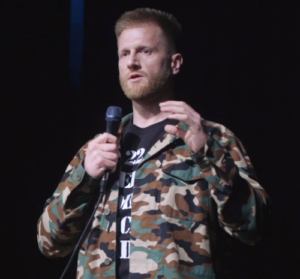 One common thread that emerged when discussing the commodification of sacred plants is accessibility. Veteran and founder of Operation EVAC (Educating Veterans about Cannabis) highlighted the importance of accessibility in his talk, asking the audience if they were willing to pay more for their experiences so those without resources could participate. DNO team member, speaker, and anesthesiologist Dr. Mellody Hayes also discussed accessibility and the importance of opening research opportunities to learn more about the value and efficacy of entheogens.
One common thread that emerged when discussing the commodification of sacred plants is accessibility. Veteran and founder of Operation EVAC (Educating Veterans about Cannabis) highlighted the importance of accessibility in his talk, asking the audience if they were willing to pay more for their experiences so those without resources could participate. DNO team member, speaker, and anesthesiologist Dr. Mellody Hayes also discussed accessibility and the importance of opening research opportunities to learn more about the value and efficacy of entheogens.
Dr. Gary Kono, who has spent over 5+ years as a hospice volunteer, shared how important entheogenic mushrooms could be for reducing end-of-life anxiety and bringing dignity and empowerment to the individual. Psilocybe mushrooms have been shown to be beneficial for both end-of-life anxiety for the patient and also healing interpersonal dynamics between family members. But these healing experiences are unavailable for those in hospice or with a terminal diagnosis; those who deserve the most respect and freedom as they face the threshold of dying.
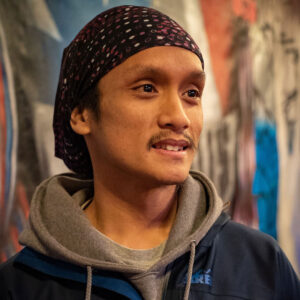 Following the speakers, members from the Oakland community offered testimonials to share the impact of entheogens on their lives. Oakland resident Gerald offered a testimony describing his incarceration and subsequent transformative experiences with entheogens like ayahuasca. “I went from being the lost person I could ever imagine, to quite literally the best person I could ever imagine. I’m my healthiest self.” He now hosts an Instagram page and live show @based_in_the_plants which offers young people education on the topic of entheogenic plants and fungi. His approach is to inform listeners these are sacred experiences worthy of respect and to offer a framework outside of recreational.
Following the speakers, members from the Oakland community offered testimonials to share the impact of entheogens on their lives. Oakland resident Gerald offered a testimony describing his incarceration and subsequent transformative experiences with entheogens like ayahuasca. “I went from being the lost person I could ever imagine, to quite literally the best person I could ever imagine. I’m my healthiest self.” He now hosts an Instagram page and live show @based_in_the_plants which offers young people education on the topic of entheogenic plants and fungi. His approach is to inform listeners these are sacred experiences worthy of respect and to offer a framework outside of recreational.
Community Organizations
In addition to speakers, this event was attended by eight different community organizations that offered skill shares and action tables. For example, the 9/20 coalition, which hosts annual events on Psilocybe mushrooms on September 20th, provided educational materials on the benefits of entheogens as did local community organization, The San Francisco Bay Area Psychedelic Society. Shinan Visionary Arts brought crafts and art from the Shipibo community, where proceeds were returned to Peru to help support their sacred healing work. Twisted Thistle Apothecary provided tips on plants that are beneficial for stress relief. And ERIE teamed up with Bloom Network to hand silk-screen over 30 shirts and hoodies with DNO logos and taglines. Magenta Ceiba, the Executive Director of Bloom Network pointed out that two of the co-authors of the resolution met at a Bloom Network gathering in 2012, an excellent reminder of how local community gatherings can catalyze powerful initiatives.
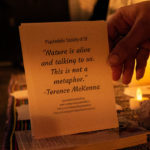
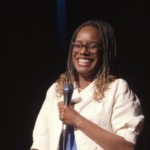
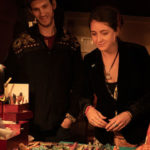
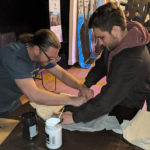
Oakland leading the way
In the same way, powerful connections were created at the DNO event, as a hub for gathering community. What makes this movement so exciting is its emergence through grassroots community. And what better place than Oakland to be restoring our roots.
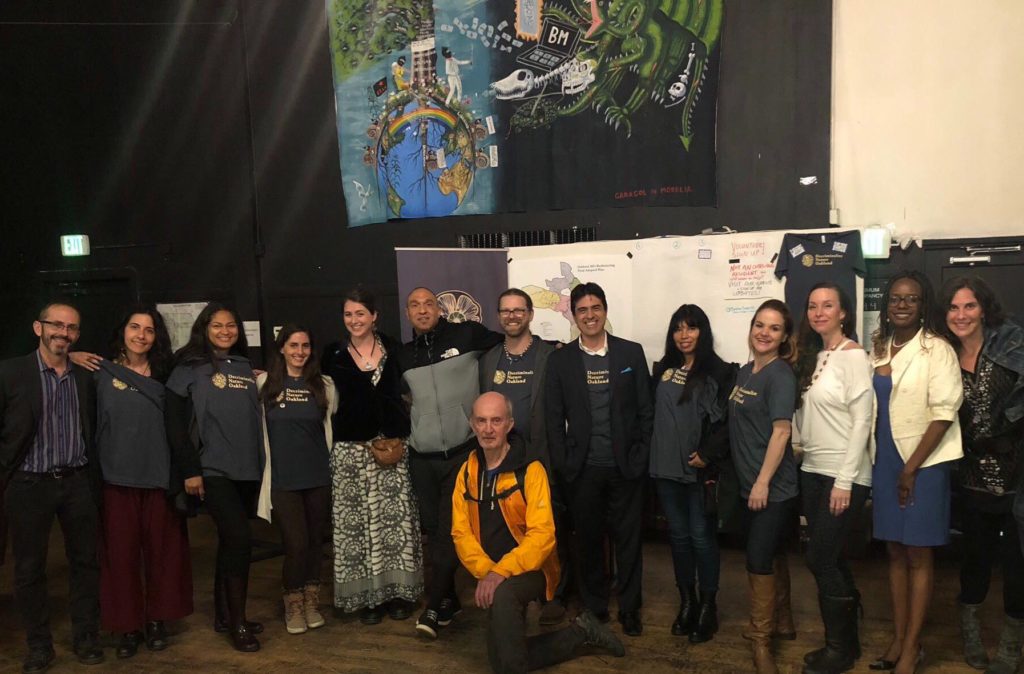 Oakland resident Carlos Plazola, DNO co-founder and steering committee member, builder, and founder of The Haven Community (a consciousness focused co-living and co-working community) held an integral role in the development of this initiative.
Oakland resident Carlos Plazola, DNO co-founder and steering committee member, builder, and founder of The Haven Community (a consciousness focused co-living and co-working community) held an integral role in the development of this initiative.
Mr. Plazola stated, “The strength of our community from which we come is our friendships… We are the base that organizations want to have as their members. We’re Oakland—east, west, north. We’re the beautiful diversity of Oakland. We’re black, brown, Asian, white, rich, poor, and in between. We’re building a movement. Here. In our own background. With our neighbors. From a place of love and compassion. This is how movements are built. We started this to help our community build connections and access to these plants that are helping people. One step is mobilizing a movement that will get our city leaders to also take a stand for this community, so the community can do what it needs to do. If that becomes a model for other cities or states, that’s great. But this is about our community, for our community.”
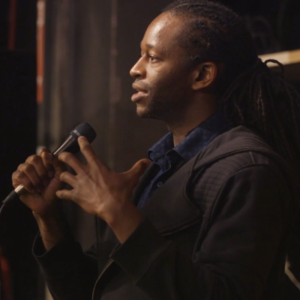 Oakland resident Kufikiri also highlights the importance of coming together in community and taking actions to protect our rights. “The power of choice, whether it is showing up here tonight, whether it is showing up in a ceremony, or social activism, don’t underestimate it. Because choice in all those different vehicles is something we always have. Even choosing not to choose is a choice. So, I hope that going forward we continue to make the choice to show up, to stay active, to stay engaged, align our intention with our actions, and to understand in that healing ourselves, we help others to heal.”
Oakland resident Kufikiri also highlights the importance of coming together in community and taking actions to protect our rights. “The power of choice, whether it is showing up here tonight, whether it is showing up in a ceremony, or social activism, don’t underestimate it. Because choice in all those different vehicles is something we always have. Even choosing not to choose is a choice. So, I hope that going forward we continue to make the choice to show up, to stay active, to stay engaged, align our intention with our actions, and to understand in that healing ourselves, we help others to heal.”
The citizens of Oakland are taking a huge step in guiding this national narrative on the decriminalization of nature, but it will take everyone helping to succeed. If you have the opportunity to volunteer or donate, the DNO educational team could use your support. Thank you to Decriminalize Nature Oakland for your incredible effort to reestablish our relationship to nature, and as ayahuasca researcher and wellness integration consultant, Yalila Espinoza Ph.D. stated to close her talk, “Many blessings on our journey.”
ERIE is one of the proud sponsors of the Decriminalize Nature Oakland Educational Project, but we need your support! Please donate at the button below to help continue growing this movement!
We look forward to continuing on this journey with you!
Please contact decriminalizenature.org for more information
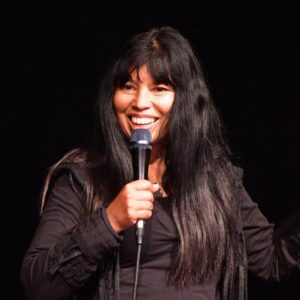
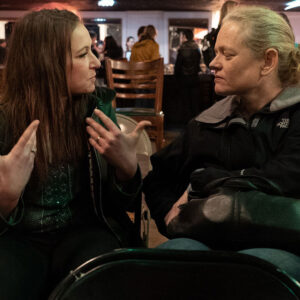
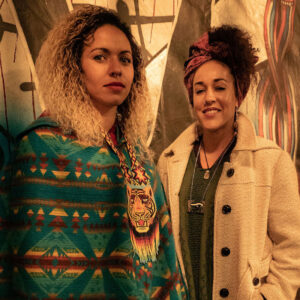
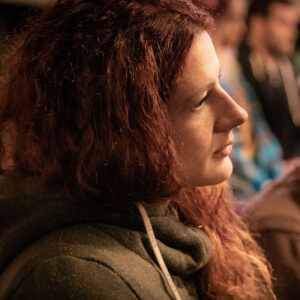
*Thank you to Norm Sands, Alan Rockefeller, Magenta Ceiba, and Valli, for the photography, and La Osa for the videography*
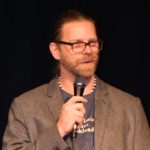
Review by Larry Norris, PhD candidate
Larry Norris is the Co-Founder & Executive Director of ERIE and a member of the steering committee for the Decriminalize Nature Oakland Educational Project. For the last 8 years, he has focused on bringing entheogenic education and integration to the Bay Area. Hosting over 65 peer integration circles for the community, Larry has offered assistance in integrating hundreds of positive, and sometimes challenging, transformative entheogenic experiences.
